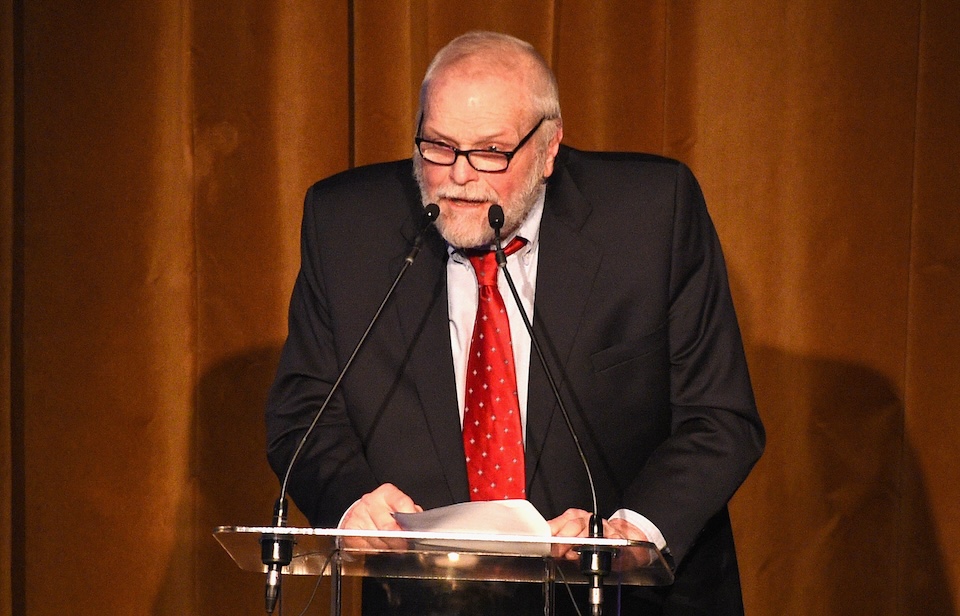Brian Dennehy, celebrated for his strong performances in films like First Blood (1982), F/X (1986), and Romeo + Juliet (1996), had an extensive career in Hollywood. However, before his rise to fame, he served in the U.S. Marine Corps from 1958 to 1963. Later in his life, Dennehy faced backlash for claiming that he had seen combat in Vietnam—a statement that was later revealed to be false. His remarks sparked frustration among veterans, especially those who had genuinely served and carried the long-lasting scars of the war.
Stolen valor
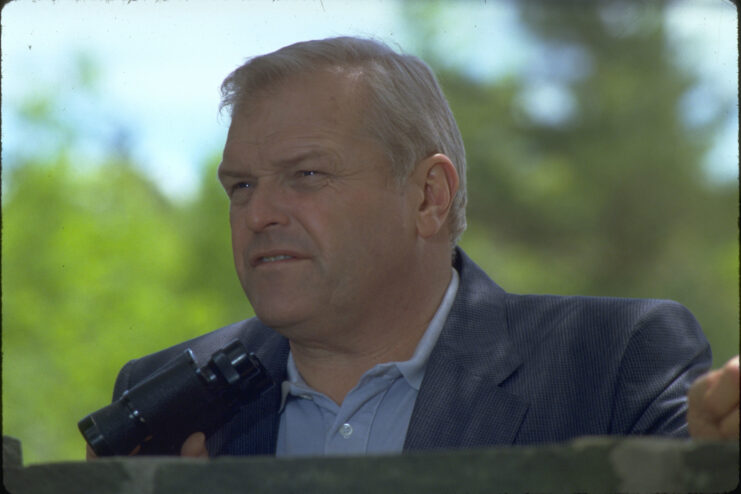
The rise of the internet has made these deceptions easier to pull off. Fake uniforms, medals, and other military paraphernalia can be easily purchased online, and social media platforms allow people to craft convincing yet false identities. Even before the digital age, verifying someone’s military background was challenging, so many simply took their word for it.
What makes this even more troubling is the discovery that some high-profile celebrities have been caught engaging in this deceit as well.
Beginning of Brian Dennehy’s career
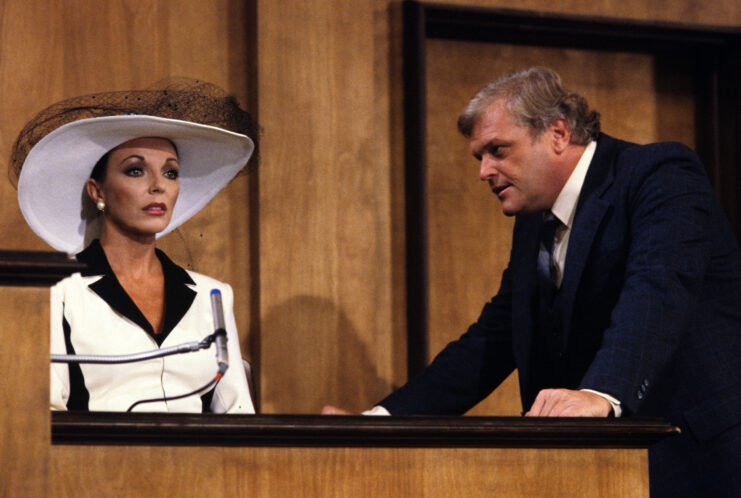
Brian Dennehy began his Hollywood career in 1977, appearing in two films and three television series. His big break came with the first Rambo film, First Blood, where he portrayed Sheriff Will Teasle. This role became one of his most iconic performances, opening the door to numerous opportunities in the years that followed.
Dennehy garnered the respect of audiences around the globe, with his military service adding to his well-earned reputation.
Service in the US Marine Corps
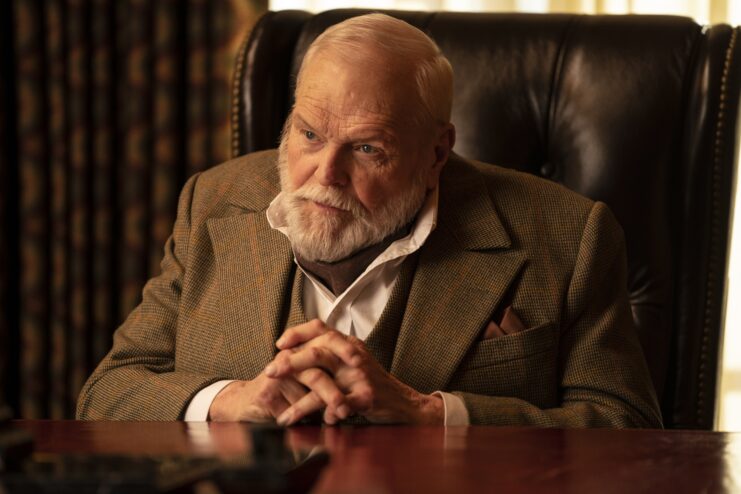
Here’s what we know about Brian Dennehy’s time in the US Marine Corps. He enlisted on September 15, 1959, and was stationed in Okinawa for part of his service, where he played football. Dennehy left the military on June 4, 1963, just shy of four years later, before the Vietnam War had intensified.
Throughout his career, Dennehy claimed to have served in Vietnam. In an interview with Playboy, he spoke of a five-year tour during the war, describing minor injuries he said were sustained in combat. He elaborated further to The New York Times, stating that these injuries were caused by shrapnel and included a concussion.
Dennehy also reflected on the mindset of those confronting the realities of killing in combat, telling Playboy, “As for killing someone, anyone in combat would agree that it’s pretty much accidental. It’s not what you’re thinking about. You spend a considerable amount of time just trying not to be in a combat situation. You’re trying to avoid coming face-to-face with anything. So when something bad happens, it’s usually accidental.”
He added, “But the implication in war movies is that war has this rational beginning, middle and end. And of course none of it does. It’s absolutely f*****g chaos. Apocalypse Now is the movie. Even more interesting is that it was made so soon after the war was over. It was and is the most sophisticated overview of the experience.”
Brian Dennehy was called out in 1998
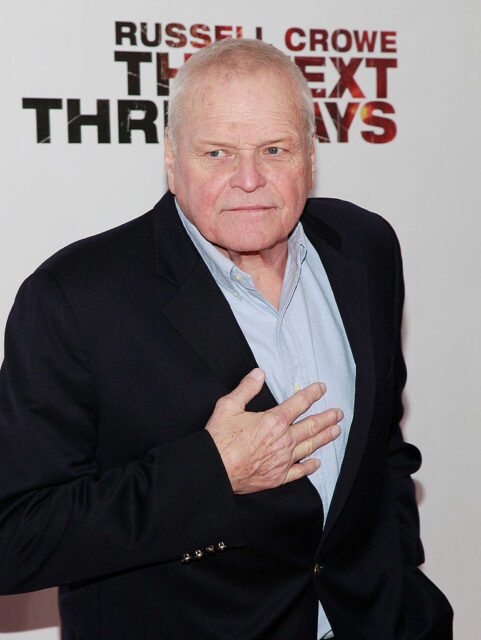
The truth is, Brian Dennehy never served in Vietnam. In 1998, he issued a public apology after being called out by B.G. “Jug” Burkett, a real veteran dedicated to exposing cases of stolen valor. Dennehy told The Globe:
“I lied about serving in Vietnam and I’m sorry. I did not mean to take away from the actions and the sacrifices of the ones who did really serve there…I did steal valor. That was very wrong of me. There is no real excuse for that. I was a peace-time Marine, and I got out in 1963 without ever serving in Vietnam… I started the story that I had been in ‘Nam, and I got stuck with it. Then I didn’t know how to set the record straight.”
As CBS News notes, the closest the actor ever got to “action” during the war was portraying Marine Sgt. Ned T. “Frozen Chosen” Coleman in the made-for-TV movie, A Rumor of War (1980).
Brian Dennehy lied… Again
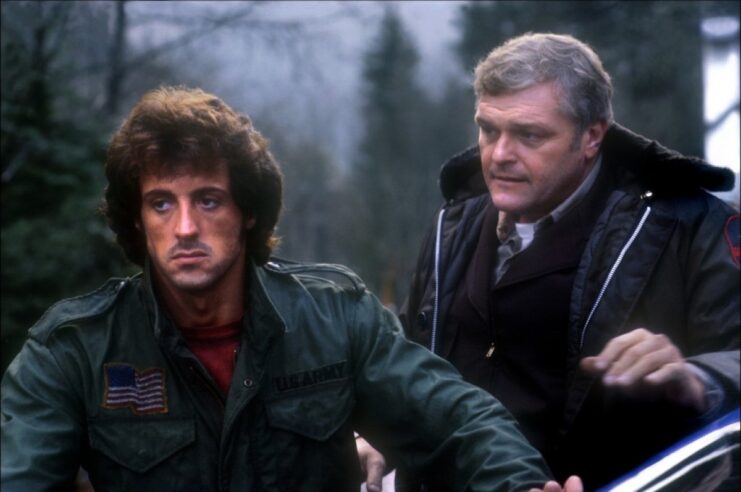
Brian Dennehy admitted to fabricating his service in Vietnam, but less than a decade later, he repeated the same false claims. In 2007, he told The Wall Street Journal that he had served in Vietnam. According to The Denver Post, he showed little regret for exaggerating his military record.
Despite facing criticism from veterans and military families, Dennehy’s career largely remained unaffected. This may have been due to a lack of broad awareness about the severity of his false claims or the entertainment industry’s tendency to overlook such controversies.
Stolen valor should never be dismissed, no matter who is involved. False statements like these diminish the real sacrifices made by veterans who have bravely served in conflicts like Vietnam, Korea, Iraq, and others. These men and women deserve sincere recognition and gratitude for their service.
